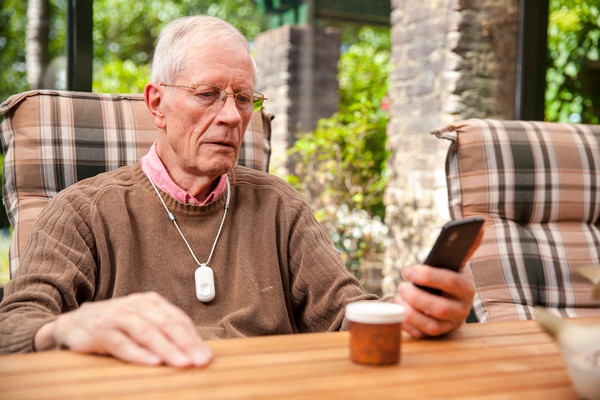Parkinson self-monitoring at home
In this partnership Radboudumc and Philips will jointly develop and implement technological innovations in healthcare. Following the trend towards self-monitoring and self-management, we will supply individual patients with their own ambulatory sensors to provide information to optimise their personal daily abilities, to provide integral care for their personal needs and to decrease risks and costs. Using this technology will therefore provide opportunities to gain insights at the level of the individual patient in his or her own living environment and to optimise personalised care towards individual needs. Parkinson’s disease has been chosen as an ideal model for other chronic diseases.

Health spending has risen faster than economic growth in many countries over the past 20 years. Maintaining high-quality affordable healthcare therefore requires care delivery to be redesigned with the help of technology and the patient's role as a partner in healthcare to be redefined. Parkinson’s disease is the second most common neurodegenerative disease. The European economic impact of the disease is estimated to be €13.9 billion. Moreover, ParkinsonNet – a national network of professionals specialised in Parkinson’s disease – offers a unique infrastructure to exploit and evaluate innovations in healthcare.
In the Parkinson@Home project, an infrastructure for self-management using multiple wearable sensors (falls detector; smartwatch; smartphone plus app) will be tested on 1000 Parkinson patients. Patients are asked to wear the sensors for 3 months, and keep track of their symptoms and medication intake via a custom-made app. The sensors provide objective movement measurements and the app provides feedback about their levels of physical activity, for example. Physiotherapists from the national ParkinsonNet will act as a personal coach, to support patient’s self-management and engagement. Results on patient outcomes will help to optimise models for integrated value-based care. The unique aspect of the project is that it aims to define the options of funding new technology as part of a financial reimbursement system based on outcomes of care.
The project will initially result in an understanding of patient’s compliance with self-monitoring tools, what the merits of ParkinsonNet therapists acting as personal coaches are, and insights into the cost-effectiveness of deploying wearables, as input for the optimisation of value-based care.


